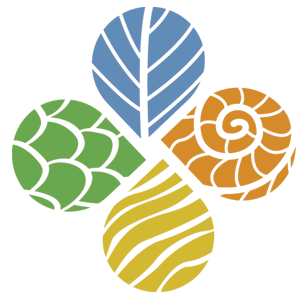Paleocollections Digitization Workshop
26-28th April 2012, Florida Museum of Natural History, University of Florida (FLMNH)
Approximately 100 million fossil specimens exist in natural history museums in the U.S., but only a tiny fraction of these (<10%) are digitized and therefore accessible for research, education, and outreach by downstream users. With other ongoing national (and international) collections digitization initiatives, the need exists to better understand how paleontological collections (“paleocollections”) will advance specimen digitization for the 21st century. To this end, we hosted a NSF-funded workshop from April 26-28, 2012, to assess the status and future of digitized collections within the paleontological community.
The approximately four dozen participants at the workshop included curators, collections managers, and other professionals from 27 institutions in the U.S. whose collections are at various stages of digitization, stakeholders from the neontological community, and two NSF Program Officers: Judy Skog (BIO) and Rich Lane (GEO-EAR). After introductions, background, and framing, the workshop sessions focused on three themes: (1) tools, databases, and portals, (2) digitization and workflows, and (3) research applications and Grand Challenges. These sessions included keynote talks (Jere Lipps, Nelson Rios, Tim Rowe, and Bruce Lieberman), shorter, focused talks about collections, three breakout group sessions, open discussion, and wrap-ups. At the end of the meeting on Saturday, we had an open discussion about Grand Challenges and “next steps” that can be taken by paleocollections to move forward with coordinated specimen digitization efforts within our community as well as within the neocollections communities. Specific next steps include: (1) hosting digitization sessions at appropriate professional meetings (such as SPNHC, NAPC) to provide training in methodology, content, and/or related activities, (2) reaching out to fossil clubs in the U.S., and (3) forming an iDigBio Working Group.
Results from the post-meeting evaluation indicated that participants felt the issues related to collections digitization were critical and relevant. While participants were generally satisfied with the workshop, the surveys also highlighted the need for continued activities that promote paleocollections digitization.
Evening activities included an icebreaker, tour of the three paleocollections (invertebrate, paleobotany, and vertebrate) at the FLMNH, and a SKYPE-enabled after-dinner talk by Nick Pyenson (with help from his laser cowboys) about his in situ digitization of Neogene whales from Chile, with the unveiling of a 3-D “printout” of a scale-model of one of the specimens.
We thank NSF for funding this workshop (project EF 123447), the speakers and participants for their input and enthusiasm, the iDigBio staff (Cathy Bester, Jason Grabon, and Kevin Love) and student assistants for coordinating the workshop, and Dr. Shari Ellis for conducting the formal evaluation.
Co-organizers: Bruce J. MacFadden (bmacfadd@flmnh.ufl.edu) and Pam Soltis (psoltis@flmnh.ufl.edu), iDigBio Co-PIs, Florida Museum of Natural History, University of Florida
Links:
- Powerpoint talks presented during the workshop: https://www.idigbio.org/forums/idigbio-paleocollections-workshop-2012
- Google working documents developed at the meeting: http://tinyurl.com/paleo2012
In addition to the resources above, a final workshop report will be submitted to NSF and also will be posted as a public document by iDigBio.
If you are interested in either participating in, or being informed about, an iDigBio Paleocollections Working Group, contact Bruce Lieberman at blieber@ku.edu.




